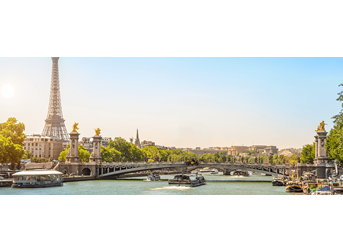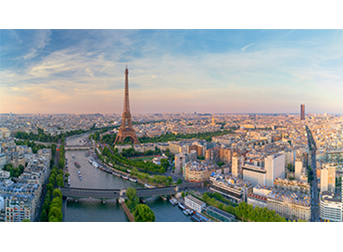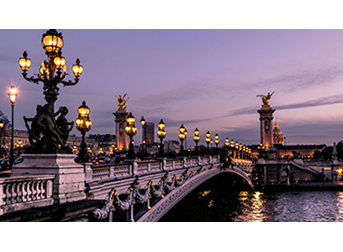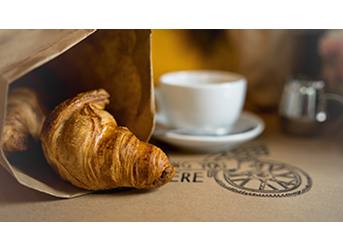Buying property in France
How to pay for your dream overseas property

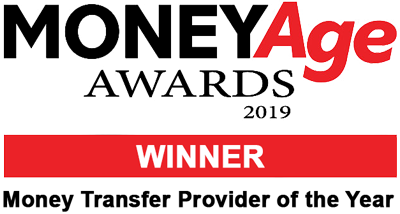

How to buy a house in France
5 minute readAs either a regular holiday destination or a peaceful place to retire, France continues to hold significant appeal for Brits. If you’re buying a property in France, it’s worth compiling a complete budget which covers all the costs.
To do this, you may need to get to know the process required to buy a house in France. There are specific rules relating to both holiday homes and relocating to France as a resident and these come with associated costs.
When you’re looking to buy property in France, a scouting trip can help you assess exactly what’s available on the market and what will suit your requirements.
From rural retreats in wine country to cultural and sporting centres, France has a lot to offer. Holiday homes in France are found across the country; some are drawn to the temperate clime and glamour of the South, others to the slopes of Chamonix or Val-d'Isère or the cultural hubs of major cities.
Many seek to retire and emigrate to France due to the healthy, delicious food and the slower pace of life, and there are regions across France that can promise this along with better weather, away from the long grey British winters.
The costs
Holiday homes in France may be a great investment as well as provide a place to retreat from your busy day-to-day life, but there are costs involved in buying and maintaining the property. If you’re planning to buy a house in France, make sure you include all these costs in your budget.
For example, currency exchange costs can add to the price, due to fluctuating exchange rates and overseas money transfer fees. High street banks charge up to £30 for each overseas transaction, and when you have legal fees, taxes and maintenance costs to pay on top of the property prices, this can soon add up.
The more significant factor is the exchange rate; a change of even a fraction of a percentage point on the exchange rate can make a big difference when considering the large sums involved in a property deposit and purchase. You can’t control the exchange rate, but as currency specialists, we can provide access to a range of tools which help you to track, target and even fix a rate of exchange so that you can be certain of the overall cost of buying a house in France.
Getting a mortgage
When it comes to buying property in France, UK lenders have proven to be unwilling to lend money for the purchase of a French property due to concerns about obtaining security against the loan. You may be able to secure the loan against other assets, but it’s worth also looking into getting a mortgage in France.
Even if you can get a mortgage in the UK, it may be worth considering taking out a mortgage in France because historically, the rates have been more favourable than those in the UK.
French mortgages can be fixed or variable rate; fixed rates are the more popular option for people buying a holiday home in France, but a third option is a variable mortgage with capped monthly payments. These flexible mortgages, or prêt modulable provide a payment cap which means that the mortgage duration will increase if interest rates push the price of monthly payments significantly higher. The main challenge if you’re looking to buy a house in France is that most French mortgages require a sales contract and so it becomes a ‘chicken and egg’ situation between signing the contract and taking out a mortgage.
To get around this, you will need to request a mortgage in principle, which should help speed along negotiations. If you’re keen to gain approval, it’s worth signing up for a French bank account early in the process, because you can use the funds in that account as proof that you can afford the deposit and ongoing costs.
Taxes and fees for buying a property in France
Notaries’ fees in France include the French equivalent of stamp duty. The overall rate is charged on a sliding scale related to the cost of the property and comes in at 7-8%. This may seem high, but as well as 5.8% for stamp duty, the cost also includes land registration costs and disbursements. You may also be liable for the estate agent’s commission.
The phrase to look out for is ‘frais d’agence inclus’, or FAI, which means fees are included, but if this isn’t the case, find out exactly what that fee will be before you sign on the dotted line.
There are two types of council tax - ‘taxe foncière’ and ‘taxe d’habitation’. The first is a land tax which the land owner is obliged to pay. The other is a residence tax and includes the French equivalent of a TV license.
If you’re buying a holiday home in France, or looking to rent it out for all or part of the year, it’s worth checking what you’re liable to pay. With all of these costs, it may be worth working with a currency specialist to get great rates and low fees on your currency transfers from GBP to EUR.
Open your account today to start your journey of buying a dream property in France.
Open an account to start transferring today
Making the most of your international payments account
Emigrating to France
Our guide on how to make moving to France as smooth and seamless as possible.
